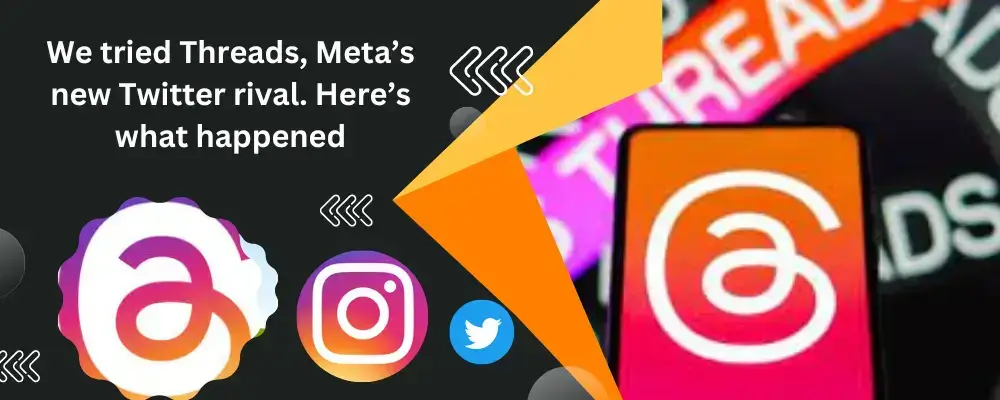
Introduction
The social media landscape is evolving at breakneck speed. Just as we settled into Twitter, along comes Threads, Meta’s new contender to rival the microblogging giant. What happened when we tried Threads? Read on to find out.
Social media platforms have become an integral part of our lives, connecting us with friends, family, and the world at large. With numerous platforms to choose from, it can be overwhelming to decide which one suits your needs best. In this blog post, we will delve into a comparative analysis of two popular social media platforms: Threads and Twitter. Whether you’re looking for a platform for personal use or considering its potential for business growth, we’ve got you covered! So let’s dive in and explore the features, user interface, privacy concerns, popularity, and more to determine whether Threads or Twitter takes the crown as your go-to social media platform!
What are Threads by Meta?
Meta’s newest social media venture is Threads. With its microblogging platform, it’s poised to challenge Twitter, the current leader in the space.
Meta Platforms Inc., or simply Meta, is the new name for the company formerly known as Facebook. The rebrand happened in 2021, signaling a focus shift towards the metaverse.
Getting started with Threads
The User Interface
App offers a user-friendly interface. The layout is simple and streamlined, seemingly designed with an emphasis on usability and minimalism. It’s similar to Twitter, yet distinctly Meta.
How Threads Works
Posting on Threads is a breeze. The design emphasizes brevity, mirroring Twitter’s character limit but adding unique features to elevate the user experience.
The Interaction Aspect
On Threads, interaction takes center stage. Just like Twitter, the platform allows for retweets, comments, and likes. However, the app introduces new tools to foster engagement and dialogue, reinforcing Meta’s vision of community building.
Threads vs Twitter: A Comparative Analysis
Comparing Threads to Twitter offers valuable insights into their individual strengths and weaknesses.
User Interface Comparison
Both platforms prioritize user experience with easy-to-navigate interfaces. But while Twitter is known for its concise, rapid-fire feed, The App incorporates elements of community building, enhancing the social aspect of the platform.
Content Sharing
In terms of content sharing, both platforms provide ample opportunities for users to voice their thoughts. However, App offers a more immersive sharing experience, encouraging in-depth conversations.
User Engagement and Interaction
User interaction on both platforms is robust. However, the app seems to focus more on community-building and less on individual status updates, a slight shift from Twitter’s methodology.
Meta’s Growing Power: Cause for Concern?
Influence on User Data
The Meta’s growing influence over our online interactions is concerning for some. The corporation’s history with data privacy issues raises questions about the future of App.
Impact on Digital Monopoly
With Threads app , Meta continues its expansion, consolidating its power in the digital world. This potentially threatens the principle of competition, a cornerstone of healthy markets.
Privacy and Security Concerns
The App Privacy and security concerns are of utmost importance when it comes to social media platforms. With the increasing amount of personal information being shared online, users want assurance that their data is protected.
Reason Not to Support the Guardian
Some argue against supporting the Guardian, contending that it leans heavily towards a certain viewpoint, thereby limiting the diversity of thoughts and perspectives.
Conclusion
While Threads is still in its early stages, it’s already shaping up to be a worthy competitor to Twitter. Its focus on community building and user interaction differentiates it from other microblogging platforms. However, as Meta’s footprint expands, it’s worth considering the implications for user data privacy and digital competition.
